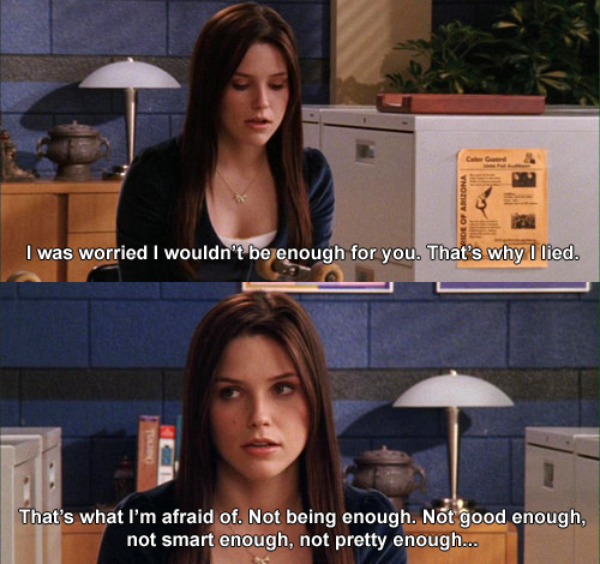Boys to men psych
I Know, You Know: The Rare Case of a Creator Combining Two Passions
When Psych came on the air in 2006, it wasn’t that different from many other things on TV. There was the classic buddy comedy taking place between Shawn and Gus with their witty banter and ridiculous shenanigans. On the other side of things there was the good cop/bad cop duo of Juliet O’Hara and Carlton Lassiter, constantly dealing with Shawn and Gus getting out of hand. Romantic tension only took about .5 seconds to make its way into the proceedings before the producers realized Shawn and Juliet worked well together (they have been dating for most of the show as well, lending a lot of reality to their on-screen chemistry) and decided that no goofy procedural should be without a will-they/won’t they. It didn’t really stand out from everything else on USA, fitting right in to the comprehensive “Characters Welcome” mantra that they had established not long before. It is a clear descendant of
Monk (quirky detective, straight man sidekick) and a precursor to current mainstays like Royal Pains (straight man gets dragged along on a zany idea turned lucrative), but other than that it hasn’t made any “Best Of” lists and most likely won’t receive much fanfare when it’s gone. Solid family fun programming that fits in with the network’s goals; nothing more, nothing less.
However, Psych does have one trait about it that should be remembered as something of an anomaly in the television world. The theme song, “I Know, You Know” was the first theme song to be written and performed by a show’s creator. As far as I’m aware, it has maintained this distinction even after being on the air for 7 seasons (and counting). Creator Steve Franks and his band “The Lonely Indians” were formed back in the 90’s as just a group of friends who met via their jobs at Disneyland jamming out together to blow off steam and enjoy their musical talents. When Franks eventually made Psych for USA Network, he decided that the simplest thing for a theme song would be to write one himself and have his band record it for the express use of the show. Instead of searching high and low for the perfect tone to match the quirkiness of his characters, he relied on his own passion for music to create a song not only jaunty in tone but with lyrics that pretty much describe the mindset of the main character every time he takes part in a police case.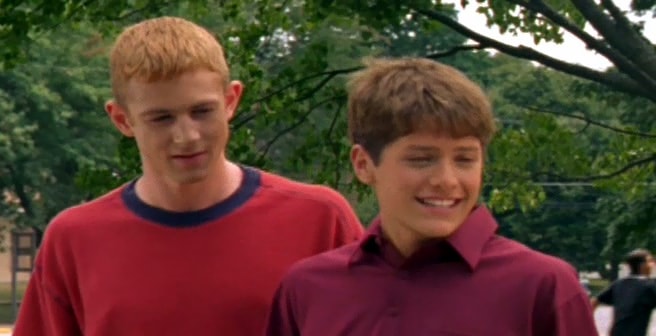
Not only did it make finding a song that went with the show a piece of cake, but there are long term positives still playing themselves out as the seasons go on. Primarily, that whenever Franks and his creative team want to slightly alter the lyrics or style of the theme for different occasions (such as this, this, this, this, this, or this) they don’t have to go to the original artist or rights holder for permission to do so. They got Boyz II Men to do a theme for the show! That awesomeness cannot be underestimated, and I’m pretty sure it would’ve been too much effort and money for USA to pay them to sing it on top of getting permission. Every variation is like a little gift when it’s a theme episode and it opens up with a different singer or the cast dressed up. In addition, “The Lonely Indians” singing the song also makes it so the show never has to go without a theme song in later seasons when budgets get cut in favor of newer and higher rated shows. This was a problem for
One Tree Hill in its later years when it was a shell of its former self and only had the budget to cover the remaining cast members but not to keep sending Gavin Degraw those meaty royalty checks for 22 episodes a year. Granted this is a good problem to have in the long run.
Granted this is a good problem to have in the long run.
If the show has survived long enough to warrant cutting the theme song to keep it on the air rather than just outright canceling it well, there are worse sacrifices to make. But in an age where true theme songs are increasingly rare on networks because that time can be better allocated getting precious ad dollars, it’s good to know on some shows that it won’t go away. Not having a theme song really does take away from the viewing experience. The fervor over the Game of Thrones theme and visuals that go along with it are possible because HBO is HBO and can do as they please, but without the amazing music and location scouting the gap between “previously on” and “sexy time with your local lords and ladies” becomes a lot more stark. Personally, I was always a bigger fan of True Blood’s theme than I was the show itself. It’s an impressive bit of world building using a pre-existing song and images that have a grand total of zero of the show’s characters in them. That’s what theme songs are all about, even Park and Recreation uses its short time wisely in introducing you to the characters and their individuality before you laugh at them for the next 22 minutes.
That’s what theme songs are all about, even Park and Recreation uses its short time wisely in introducing you to the characters and their individuality before you laugh at them for the next 22 minutes.
Steve Franks isn’t the only showrunner who has a penchant for finding the absolute pitch perfect music to accompany his characters in their weekly sojourns. Other’s that come to mind include Jason Katims and Bill Lawrence. Katims seems to have a previously undiscovered gene that allows him to know exactly what song at any given time will make human beings cry their eyes out, and damn if it isn’t effective (looking at you Parenthood). Lawrence is almost the opposite, pairing comedy with indie music or lightening up the end of a particularly dramatic episode with some long lost mid-90’s throwback that matches so well it’s eerie. During his
Scrubs days, he had a lot of help from Zach Braff in that department but he’s proven himself able across the board since. It would be nice if more people behind our favorite (or even less-than-loveable) shows had the penchant for music that Franks does, but for now we will have to be fine enjoying the ones who are already proving how not needing a music supervisor to do ALL the heavy lifting can be better in the long run.
It would be nice if more people behind our favorite (or even less-than-loveable) shows had the penchant for music that Franks does, but for now we will have to be fine enjoying the ones who are already proving how not needing a music supervisor to do ALL the heavy lifting can be better in the long run.
Grace Notes:
- Psych’s musical episode was supposed to air this season, but was pushed to next year. USA now has it scheduled as the same type of between seasons 2-hour special that the Royal Pains wedding was last winter. Many of the past send-ups of famous movies and shows were the result of a cast member having a ridiculous knowledge of said subject (see: James Roday and his love of Twin Peaks making itself clear in “Dual Spires”). I’m curious as to how Franks’ own musical talents will influence which styles they do or even if a cameo is in store.
- Roday in a cowboy hat in the standard credits gets me every time, as does Dule Hill falling while running up the steps.
 I don’t know why I laugh, but I do.
I don’t know why I laugh, but I do. - Here are both the standard credits and the full song for your enjoyment:
Like this:
Like Loading...
The Musical Guests Of USA Network’s Psych
Since its inception in 2006, the USA Network original series “Psych” has featured an impressive array of musical guests. The show’s quirky and humorous tone is perfectly complimented by an eclectic mix of both well-known and up-and-coming artists. Notable performers include: – alternative rock band Weezer, who sang their own version of the show’s theme song – indie folk singer-songwriter Feist, who lent her talents to the show’s holiday episode – rap superstar Snoop Dogg, who appeared in an episode appropriately titled “Santabarbaratown” Whether crooning a original song or belting out a classic, the musical guests of “Psych” always add an extra dose of fun and excitement to the already enjoyable show.
Notable performers include: – alternative rock band Weezer, who sang their own version of the show’s theme song – indie folk singer-songwriter Feist, who lent her talents to the show’s holiday episode – rap superstar Snoop Dogg, who appeared in an episode appropriately titled “Santabarbaratown” Whether crooning a original song or belting out a classic, the musical guests of “Psych” always add an extra dose of fun and excitement to the already enjoyable show.
Psych: The Musical premieres this Sunday at 9 p.m. ET on USA. Shawn and Gus attempt to locate a playwright in a musical adventure that spans two hours and thirty minutes. To prepare for the show, we compiled a list of the best musical moments. In a tribute episode, Psych featured a number of Twin Peaks cast members. Jules (Maggie Lawson) and Lassie (Tim Omundson) are dressed up in costumes as monkeys. If YouTube had videos of all of the singing, including swing Low Sweet Chariot and flashback scenes of hammer-pants Gus in college, there would be no shortage of songs to choose from. One of the catchphrases has been given a musical update. The Boyz II Men theme song is without a doubt the best of the show’s many alternate theme songs. This is a sweet sneak peek of the episode.
One of the catchphrases has been given a musical update. The Boyz II Men theme song is without a doubt the best of the show’s many alternate theme songs. This is a sweet sneak peek of the episode.
Peacock has released a new episode of Psych Season 7, Episode 15: Psych: The Musical.
When Rodriguez was a young actor on Psych, the show’s early seasons were plagued by “execution,” as they had to convince USA that a musical would be a good idea for the series [via THR]. Later on, as Psych began to make tribute episodes to its TV series, such as Season 4’s. Mr. Hitchcock was inspired by Alfred Hitchcock’s film.
Did They Actually Sing In Psych: The Musical?
Image by: pinimgYes, they actually sang in Psych: the Musical. The whole cast sang throughout the episode, with some solo performances by James Roday (Shawn) and Dulé Hill (Gus). The songs were all original, and were written specifically for the episode.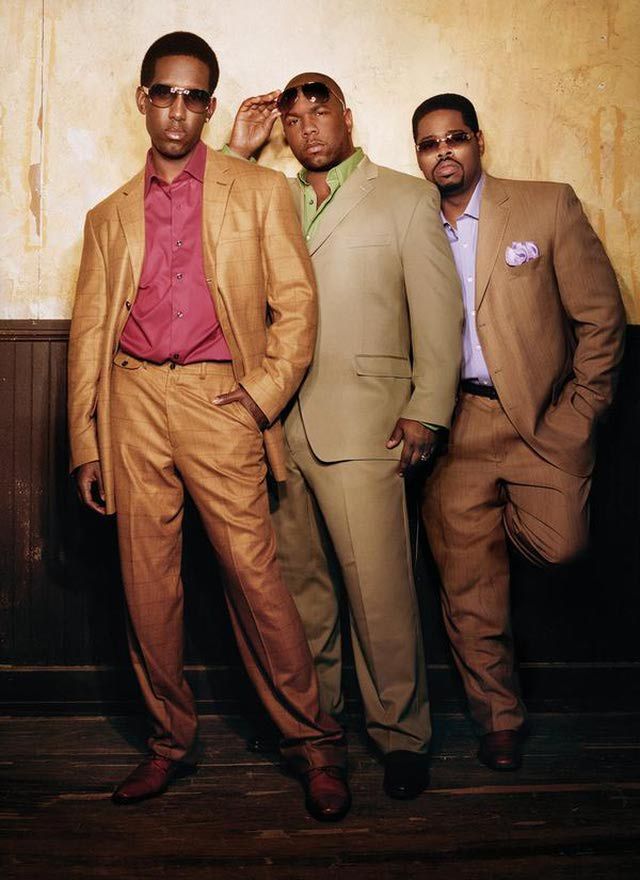
Who Sang The Theme Song For Psych Season 6 Episode 13?
You know you know is one of the themes used in Psych. Franks and his band performed the song during the show’s production, which was written by the show’s creator.
Who Didn’t Sing In Psych: The Musical?
Image by: townsquareCohen then created his usual computerized versions of the songs as soon as they were written, and the cast recorded the vocals. He modified versions with the full orchestra after the episode was shot to ensure that the orchestral music exactly matched the vocals, and they were added several months later.
Usa Network’s Psych: The Musical Is A Must-see For Fans Of The Show
Dulé Hill (Det.) and James Roday (Stubbs) reunited in a USA Network special titled Psych: The Musical. As well as guest star Corbin Bernsen (Frank), who plays the show’s main singing detective. Finally, after a long journey and many failed attempts, Roday and Hill have the opportunity to produce their own dream episode – a Psych Twin Peaks episode – and Franks will be able to bring his “baby” to life. Frank’s musical is described as his “baby,” as he has wanted to do for a long time. In the show, Roday and Hill sing Santa Barbara Skies, Z, and I’ve Heard It Both Ways, as well as (When You’re Making Up a Song), with guest star Corbin Bernsen (Frank) assisting. Shawn Spencer is absent from the stage, but he adds to the speech. Fans will be able to catch up on all of the current developments in the Psych universe thanks to the nostalgic visit to the early days of the show.
Frank’s musical is described as his “baby,” as he has wanted to do for a long time. In the show, Roday and Hill sing Santa Barbara Skies, Z, and I’ve Heard It Both Ways, as well as (When You’re Making Up a Song), with guest star Corbin Bernsen (Frank) assisting. Shawn Spencer is absent from the stage, but he adds to the speech. Fans will be able to catch up on all of the current developments in the Psych universe thanks to the nostalgic visit to the early days of the show.
Who Wrote The Theme Song For Psych
Image by: pinimgThe theme song for the show Psych was written by The Friendly Indians.
Psych Theme Song Singer
I don’t know who the psych theme song singer is, but I love the song! It’s so catchy and upbeat, and it always gets me psyched up for the show. Whoever the singer is, they’ve got a great voice and a great sense of rhythm.
The Friendly Indians: A Band That Brings The Fun
The Friendly Indians were a band formed in Anaheim, California, in 2000. The band is made up of four friends who enjoy playing music and performing together. When they were working on Tom Sawyer Island at Disneyland, the four American Indian figures were known as the band’s moniker. The band has played in venues across the country since its inception, and it has released two albums. The most recent album from the band was released in 2017 and can now be found on Spotify.
The band is made up of four friends who enjoy playing music and performing together. When they were working on Tom Sawyer Island at Disneyland, the four American Indian figures were known as the band’s moniker. The band has played in venues across the country since its inception, and it has released two albums. The most recent album from the band was released in 2017 and can now be found on Spotify.
Why Does The Psych Theme Song Change
The psych theme song changes because the show is set in present day and the song is meant to be a reflection of that. The original song was released in 2006 and the show is set in present day, so the song is meant to be a more modern reflection of that.
Musical Episode
A musical episode is an episode of a television show where the characters sing and dance throughout the episode. It is usually a one-time event and is often used as a way to break up the monotony of a regular episode. Musical episodes can be very fun and entertaining, and often the songs are catchy and memorable.
Throughout the musical episode, the cast performs (and possibly dances) to songs. Perhaps it could use an in-universe explanation, such as a Battle of the Bands battle. Some events may also be presented in a more theatrical manner, such as on Broadway, where song and dance are used to retell certain stories. You will almost certainly fail from the start if you do not have the time or resources to hire an actor who can easily lip sync and teach him/her. People recall such episodes because songs have a strong emotional impact on them. As a result, we are not aware of any musical based on Eva Peron’s life.
Three Stages of Boy Development - Psychologos
Boys do not grow by themselves, evenly and smoothly. It doesn’t happen that you bother only by stuffing healthy cereals into your child, providing him with clean shirts - and one fine day your boy wakes up a real man! It is necessary to follow a certain educational program.
Briefly about the three stages of development
The film "Yevkurov and the boy with a pompom"
1. First stage covers the period from birth to six years - the age during which the boy is most closely related to his mother. This is "her" boy, even though the father can play a very big role in the life of the child. The purpose of education during this period is to convey to the boy great love and a sense of security, to "charge" him for life as a great and exciting journey.
First stage covers the period from birth to six years - the age during which the boy is most closely related to his mother. This is "her" boy, even though the father can play a very big role in the life of the child. The purpose of education during this period is to convey to the boy great love and a sense of security, to "charge" him for life as a great and exciting journey.
2. The second stage lasts from six to fourteen years old - the age period during which the boy, following his own inner feelings, wants to learn to be a man and looks more closely at his father, his interests and actions. (Although the mother remains a very close person, and the world around her is becoming more and more interesting). The purpose of education during this period is to increase the level of knowledge of the child and develop his abilities, not forgetting about kindness and openness, that is, to strive for the development of a harmonious personality. It is at this age that your son comes to feel the joy and comfort of being a boy.
It is at this age that your son comes to feel the joy and comfort of being a boy.
3. And finally, the period from fourteen years to adulthood - when the boy needs the participation of a male mentor if he wants to be fully prepared for adulthood. Mom and dad are somewhat receding into the background, but they must find a worthy mentor for their son so that he does not have to be content with the knowledge and experience of his incompetent peers. The purpose of education at this stage is to teach skills, instill a sense of responsibility and self-respect, actively involving them in adulthood.
Please remember that these stages do not in any way imply a sudden or abrupt transition of influence on the child from one parent to another. It is best when both parents take an active part in the life of a son from childhood to adulthood. The stages of adolescence only indicate a shift in emphasis: for example, the father comes to the fore at the age of the son from six to thirteen, and the influence of mentors increases from the age of fourteen. The main criteria for choosing a mentor are safety and honesty.
The main criteria for choosing a mentor are safety and honesty.
Knowing these three stages, you can clearly define a program of action for yourself. For example, it is quite obvious that the fathers of boys between the ages of six and fourteen should not be workaholics, nor should they be removed from the family either morally or physically. If this happens, it is exclusively to the detriment of the sons. (And yet this is exactly what modern fathers do, as many of us can attest to from our childhood experiences.)
Boys' developmental stages suggest that we need extra help from society when our sons reach adolescence. Once such support was provided by relatives (uncles and grandfathers) or craftsmen who took boys as apprentices and apprentices.
Unfortunately, today it happens too often that teenagers go out into the big world, but there it is as if no one is waiting for them, no one is offering a helping hand, and they are forced to spend their adolescence and youth in dangerous homelessness. Some never grow up.
Some never grow up.
It is fair to say that many of the problems - especially those related to the behavior of boys, their lack of motivation at school, and then trouble with the law (driving drunk, fighting, etc.) stem from the fact that we did not know about the characteristics of the boyish development and did not provide them with the necessary assistance in time.
Knowing the three developmental stages of boys is essential, so we must consider them in detail and decide how to respond. What we are doing now.
From birth to six: tender years
Babies are babies. It is a girl or a boy - it does not matter either for the child himself or for his parents. Babies love to be held, played with, squeezed, and they giggle contentedly; they like to observe the world around them. Babies have different temperaments. With some it is quite easy - they are calm and relaxed, they sleep for a long time. Others are noisy and restless, always demanding action. Someone fearful and restless, in need of constant confirmation that there is someone next to him, that he is loved. See →
See →
From six to thirteen: an interest in masculinity
At the age of six, boys undergo an important metamorphosis. It is as if a masculinity that has been dormant until now wakes up in them. Even those boys who don't watch much TV suddenly start to show interest in weapons, dream of wearing superman caps, wrestling and fighting, playing noisy games. And something else very important is happening: and this is typical for all countries and cultures. Around the age of six, boys seem to lock on to their father or grandfather or another man. They awaken the desire to be close to a man, to learn from him, to imitate. They want to "learn to be a man." See →
Fourteen and older: becoming a man
Around the age of fourteen, a new stage of adolescence begins. As a rule, at this age, boys are noticeably stretched in growth, but a dramatic change occurs in the body: testosterone levels increase by almost 800 percent!
Although everything is individual, but at this age they have something in common: they become more stubborn, restless, their mood often changes. And it’s not that they change for the worse, it’s just that a new personality is born in them, and birth always involves a struggle. They need to find answers to serious questions, plunge into new adventures, set new goals for themselves, set priorities for the future - and meanwhile, the internal clock rushes them to live. See →
And it’s not that they change for the worse, it’s just that a new personality is born in them, and birth always involves a struggle. They need to find answers to serious questions, plunge into new adventures, set new goals for themselves, set priorities for the future - and meanwhile, the internal clock rushes them to live. See →
10 differences between a man and a boy - A site for the soul
How to distinguish a Man from a boy by his behavior, and not by the age factor and the presence of sexual experience
Almost all women dream of seeing a strong shoulder, a reliable rear, a loving person nearby , a caring friend, a financially stable source of money and a passionate lover. The main thing is that all these qualities are contained in one person. In the most beloved, necessary and only hero. Of course, for all women, the sequence and dosage of these criteria are different, but, in principle, the essence remains the same.
The world has changed a lot in the last 20 years: marriages are no longer concluded immediately after graduation, the first children appear after thirty, women are increasingly earning more than their men.

A modern woman has become more demanding in choosing her partner. She is no longer so naive, but still wants to get her portion of "noodles on the ears." She knows that “all men are their own”, but stubbornly searches for her one and only. A woman from modern society has achieved success in her career, but is already tired of going forward alone. The period of her “everything needs to be tried” is already running out, but she has not yet got used to limiting herself. She is for a relationship "without masks", but still all in her armor.
Modern Man is a classic type of self-confident male. It has its own principles and rules, one might say "code of honor". He knows what he wants from life, and boldly takes his own. It is difficult to "dissolve" him and he knows exactly how to tip the scales in his favor. He is strong, confident in his abilities, but his main feature is that he can solve any problem.
According to the laws of attraction, a girl attracts a boy, and a woman attracts a Man.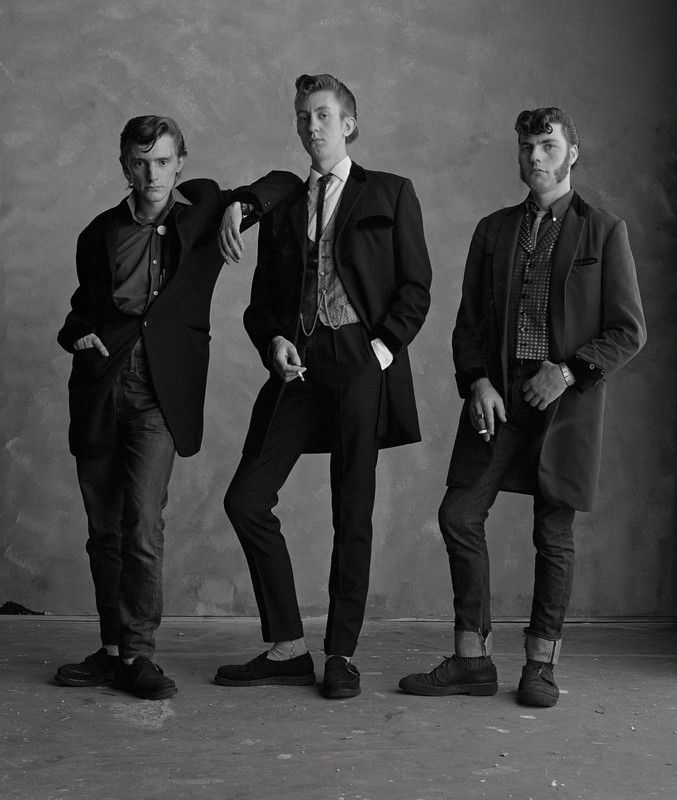 By nature, a real Man will not be able to pay attention to an infantile, stupid person without any signs of adaptability to life. Not everything can, because his beloved woman must suit his status and be a worthy motivator for future exploits.
By nature, a real Man will not be able to pay attention to an infantile, stupid person without any signs of adaptability to life. Not everything can, because his beloved woman must suit his status and be a worthy motivator for future exploits.
In this article, we will look at the differences between a "Real Man" and a "boy". Age and sexual experience are not indicative of the difference between these types. You can be a 35 year old boy and an 18 year old Man.
Consider the following differentiation of boys and men:
when it's time to act. The Man has no habit of fussing and panicking. He has a sober view of the situation and a well-thought-out strategy of behavior. The man is a rock.
• The boy, on the other hand, can only speak beautifully and absolutely does not know how to behave in critical situations.
2.
 The ability to admit one's guilt
The ability to admit one's guilt • A real Man is not afraid to admit his guilt, he understands when and in what he was wrong. He is not afraid to apologize publicly. Perhaps the Man will not necessarily say the usual “I'm sorry”. Instead, he can make a gift, create a pleasant situation for his woman, instantly offer ways to solve the problem to his partners. His way of resolving a conflict situation is more effective than ordinary words.
• The boy will insist to the last that he is right and build his defense in the position of "attack".
3. Life principles
• Men have an unspoken code of honor and conduct. There are principles to which they are true for years. A man will not go against his will, he will always prioritize correctly and, most importantly, he will be able to painlessly find alternative ways for himself with greater benefit for his prospects. This applies to friendship, personal sphere and business.

• The boy is quick-tempered and cannot adequately react to the situation. He does not have a clear position of behavior - there is only a desire to be noticed. His course for life is to "go with the flow."
4. Reaction to a woman's "no"
• A woman by her nature is used to being capricious, craving the moment when she will be persuaded, forced, convinced. In short, "flirt". A man adequately responds to this desire. He has in his genes the ability to "bring" a woman to the right decision. After all, a person is satisfied when he makes decisions on his own, and Men have a special gift to persuade, convince, argue without undue pressure, but always get what they want.
• Boys, on the other hand, do not want to complicate their lives with new problems. For them, the quantity, not the quality, of his “exploits” is important. The boy will never fight to be noticed by any particular woman, he will bask in the glory of his fans.
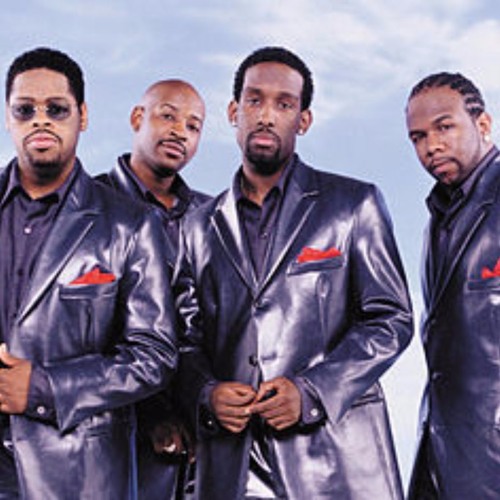
5. Attitude towards family
• Men build strong relationships. They spend their free time with their family, not because they are homebodies and do not know how to have fun, but because they are good fathers and husbands. Everyone can be a dad, but not everyone can be a good father. It is not for nothing that most women, when choosing their Man, subconsciously imagine what kind of father he will be for her child.
• The boy will be led, he will not make decisions, but will look for all sorts of ways to "slope" from his duties. A family for a boy is a special burden that is needed for society, but a burden to him personally.
6. Respect for the female sex
• Women sometimes go too far, are too capricious or act frivolously, but a Man will never allow himself to hit a woman or insult her in public. Men can discuss their "conquests", but they will never "suck" the situation with everyone in a row, exposing their exploits in all their glory.
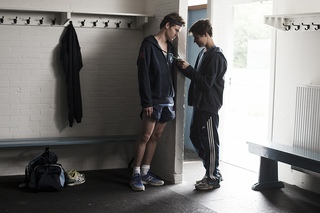 Men ALWAYS respect women, and not only their own. He will skip forward a colleague, a neighbor, just a stranger (sometimes, of course, to appreciate her fifth point, but this is not the main reason). Good manners are more important than any flirting.
Men ALWAYS respect women, and not only their own. He will skip forward a colleague, a neighbor, just a stranger (sometimes, of course, to appreciate her fifth point, but this is not the main reason). Good manners are more important than any flirting. • Boys show off their exploits consistently. They make lists of their "victims", allow themselves an incorrect attitude towards the fairer sex.
7. Behavior during sex
• A man knows for a long time which positions, places and beats are ideal for him and his partner. Yes, he tried a lot in his time, but now he is no longer an experimenter, he takes only the best from life, refusing tinsel. Of course, sometimes he needs something new, but this is not a search for something exotic, but rather a fleeting desire for variety. He prefers to have physical intimacy with a woman who is able to excite him mentally, and this is worth a lot.
• Boys will study the Kama Sutra without thinking about the pleasure of their partner.
 For him, only diversity in terms of poses and partners is important. Eternal period of knowledge of the world.
For him, only diversity in terms of poses and partners is important. Eternal period of knowledge of the world. 8. Attitude to the world
• A man knows exactly what and how he wants. He is self-confident and predicts the behavior of others in a given situation. A man realizes that the world does not revolve around him, he independently moves forward in order to improve his life and the lives of people close to him. For Men, the process of self-improvement and conquest is important.
• The boy hopes that he will be lucky. No confidence and no control over the situation. Some hopes and desires.
9. Plans for the future
• A man sets a goal and goes to it, he strategically thinks through his steps to achieve the goal.
• The boy lives today, having ideas and not having the desire to bring them to life.
10. Woman's choice
• A man will always be able to discern a smart woman among a rich assortment.
 And the wiser the woman, the better her choice. An intellectual woman has a number of demands that she secretly makes to her Man. Real Men will never choose an infantile and weak woman. He needs a self-confident girl with a rare gift - to be his personal muse. A spiritually rich woman will help him in business with unobtrusive advice, in his personal life with a comfortable life, and in bed with maximum relaxation.
And the wiser the woman, the better her choice. An intellectual woman has a number of demands that she secretly makes to her Man. Real Men will never choose an infantile and weak woman. He needs a self-confident girl with a rare gift - to be his personal muse. A spiritually rich woman will help him in business with unobtrusive advice, in his personal life with a comfortable life, and in bed with maximum relaxation. • The boy will be with the brightest and craziest girl in the party. For him, brilliance and popularity are important, and not depth and the ability to inspire.
During the period of knowledge of the world, girls meet different types of men: “romantic”, “man for the weekend”, “businessman”, “eternal skeptic”, “Apollo”, “lovelace”, “party-goer”, “mentor”, “ sportsman”, “stranger”, “superman”. This list may not be complete, but these are the most memorable categories of men that girls meet.
So, those who can still be attributed to the “Man” type will always help when they are asked for help, and notice that they are not begged for it, but only asked once.





